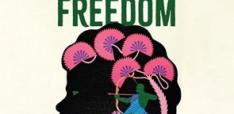Religion is Not what it Used to be. Consumerism, Neoliberalism, and the Global Reshaping of Religion

The last half-century has seen a shift, not from religion to no religion but from one type of religion to another. François Gauthier argues that scholars of religion have often ignored the rise of economics as a dominant and structuring social force beginning in the 1980s and, as such, how consumerism and neoliberalism have shaped religion. He finds that entrepreneurial types of religion and those that cater to the culture of authenticity and expressivity are experiencing vitality and growth.
Religion is not what it used to be. Not so long ago, this statement would have been understood as meaning the decline of religion. A claim that seems supported by the recent survey that shows that over 50% of British adults today declare to be “non-religious”. Yet this trend is only a very superficial appraisal of what is really going on. If we look closer, the last half-century has not been a shift from religion to no religion¾what we commonly refer to as “secularization”¾as it is a shift from one type of religion to another. What are the forces that are driving this shift? I believe these can be boiled down to two complementary processes: the joint rise and globalization of consumerism and neoliberalism. Not as monolithic and unidirectional forces, but as the two heads of a process that has eroded the National-Statist foundations of our societies in favour of a new configuration in which the mechanisms and the idea of Global Market are determining. As a consequence, we are shifting from what I call a “National-Statist regime” of religion towards a “Global Market” one.
It is fascinating that scholars of religion have all but ignored the obvious: the incredible rise of economics as a dominant and structuring social force in the beginning of the 1980s. We have all noticed that education, health and the state’s mission in general are now all submitted to the logics of economic efficiency. And we have all noticed that consumption impregnates social life in such a way that it is impossible to relieve oneself in public facilities without having to stare at publicity. Branding has become a must for political parties, hospitals, NGO’s and even people. Still, the most prominent authors typically make no mention of the recent developments of capitalism in their analyses of religion, contrary to other disciplines which have acknowledged the neoliberal revolution.
Consumerism
In the West, consumerism came before neoliberalism. Consumption became a mass phenomenon starting in the late 1950s and especially the 1960s. It was not only an economic phenomenon: it was a cultural and social revolution. From that moment on, the consumption of objects and services became a vehicle for the expression of personal identity and became tied to the quests for an authentic life for all social classes. The concept of “consumerism” captures how consumption is more than simply buying goods in a market: it is a means of circulating symbols, meanings, identities and belonging.
Charles Taylor has argued that consumption provided a formidable vehicle for the democratization of the “culture of authenticity and expressivity”, according to which every individual is thought of as having a unique self, and that finding and realizing this self constitutes the very meaning of life. This authentic self, moreover, must be freed from external authorities, such as parents, political and religious institutions. Such a consumer culture is paradoxically hyper-individualistic and communitarian. Identities, collective and personal, become an important stake. They have no substance if they are not expressed and recognized by significant others. Hence the incredible success of “social media”.
How does this relate to religion? Rather than providing the basis for the progressive dislocation of religion, it recomposes it and gives way to novel expressions. It shapes religion from “below”. Religion becomes a matter of choice: born-again Muslims, Hindus and Catholics join Pentecostals in considering that religion must be chosen. The increase of “spiritual-not-religious” adhesions lies under the varnish of “non-religion”. Religion becomes de-institutionalized and event-based. De-territorialised, voluntary communities replaceterritory-bound, inherited ones. National religion cedes way to imagined global communities (the global ummah), transnational fluxes and/or subcultural, tribal or ethnic belonging. Expressive-authentic religion becomes publicized in more ways than the simple societal exposure and political relevance of religious institutions.
Neoliberalism
Neoliberalism consists of the remarkable return of the old neo-classical assumptions about the supposedly flawless and value-neutral virtues of the free-market with respect to optimal resource redistribution and social regulation. It found renewed credibility after three decades of Keynesian-led unprecedented economic growth and inequality reduction. Neoliberalism rapidly became an inescapable set of policies, enforced by new supranational institutions in the wake of Reagan and Thatcher’s (TINA: there is no alternative) deregulation of the financial sector. These macro-economic shifts gave the impulse for the latest and on-going wave of globalization, whose core is the enmeshing of the world into a single global market and corresponding networked culture.
Neoliberalism substantially transformed our societies by submitting all other social spheres, and the state’s mission in particular, to the laws of international commerce and economic “efficiency”. Its related ideologies and practices, such as New Public Management, branding and marketing, were imposed across the board to social service institutions. Neoliberalism, hand in hand with consumerism, naturalized a utilitarian and economic rapport to the world. It contributed to change the very language of social regulation, burying former talk about government under the new self-evidences of “governance”.
Neoliberalism shapes religion from “above”. It changes the environment in which religious institutions evolve, and imposes new ways of managing human and economic resources. Traditional religious institutions, which were bureaucratized, hierarchical and vertical, are forced to downsize, rationalize their activities, develop communication strategies and branded identities, outsource administrative tasks and cast their mission as the provision of services meeting individual “needs”. Meanwhile, new networked, supple, charismatic, horizontal and transnational religious organizations emerge which increase pluralism (now understood as “competition”) and challenge institutionalised privileges.
Religion spills out of its box
Both consumerism and neoliberalism combine to blur the boundaries between the religious and “secular” spheres, to the extent that the religion/secular distinction becomes increasingly impotent. Religion comes out of its box. The social differentiations of National-Statist modernity break down as religion blends with tourism, business, media, entertainment, politics, psychology, medicine and healing. The private / public divide, which formed the basis for the political regulation of religion in both Republican and Liberal regimes, is dissolving under the expressive thrust. The neoliberalism induced “rollback” of the state leads to new religious initiatives in the field of healthcare, law, education, social work and welfare in general.
Overall, types of religion that remain closest to the former National-Statist model are those experiencing decline and facing the greatest pressures for reform. On the other hand, those which espouse an entrepreneurial type and cater to the culture of authenticity and expressivity in one way or another are experiencing vitality and growth. The self-realization tropes of New Age derived “holistic spiritualties” have become totally embedded in popular and managerial culture. They are also increasingly being recognized as acceptable forms of therapeutics by insurance companies and states alike. Charismatic trends, of which the wild development of Pentecostalism is only a small part, are similarly on the rise, often accompanied by the valuation and promotion of prosperity and success. The formidable rise and seemingly unbounded extension of the halal market (including sharia-friendly packaged vacations and five-star Mecca pilgrimages), the emergence of fashion or integral veil wearing, as well as the rise of a new globalization-friendly, capitalism-drenched Muslim pride, are only some of the phenomena which have transformed the face of Islam in Muslim-majority countries and Western diasporas.
Those who remain entrenched in the political-institutional paradigm barely consider these phenomena to be worthy of attention. They are wrong. If they would take notice of the obvious importance of economics in the foundation and dynamics of our societies, and conceive of the “market” as anthropologists rather than neo-classical economists, they would understand these trends not as marginal developments, but as the very core of what religion is becoming before our very eyes. Since the acknowledgment of this global shift sheds light on how religion is no longer where our institutionalized political regulations expect it to be, the consequences for policy and public debate are enormous.
François Gauthier is Professor of Sociology of Religion at the Social Sciences Department of the Université de Fribourg, Switzerland, and is working on a model for understanding global religious change. This post first appeared on the LSE's Religion and the Public Sphere blog.
Image Credit: Sarah Joy via Flickr (CC BY-SA 2.0)


